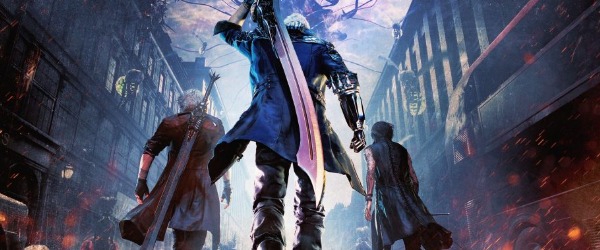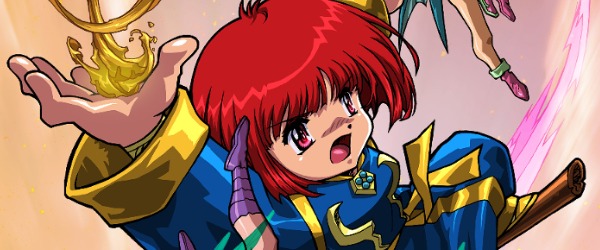
The "Golden Age" of Gaming - Article
by Jake Weston , posted on 18 April 2012 / 11,804 ViewsFor many, any in-depth discussion of video game history will conjure fond memories of the original 8-bit Mario and Zelda, traveling the expansive 16-bit worlds of Chrono Trigger and Final Fantasy VI, or stepping onto Shadow Moses Island for the first time in Metal Gear Solid. To many gamers, this is their “Golden Age”, where the games had never been better, and to them have yet to be surpassed. Of course, we always look to the past with rose-tinted glasses, and for most gamers these are the games that comprised their childhoods. Yes, A Link to the Past, Mega Man X, and Super Mario Bros. 3 are all amazing, but fans are doing themselves a disservice by labeling this era as the best in gaming; one that will never be surpassed. Gaming is still relatively too young to attribute any era as a “Golden Age” just yet. With the first commercial video game reaching homes a mere 40 years ago, it is too soon to clearly label any game generation whatsoever, save for the obvious division of console generations. In fact, 50 years from now, it is entirely possible that game historians will call our current era the “Golden Age”.
No other medium invokes comparisons to video games more than film, so it’d be appropriate to compare the growth of video games as a medium to the medium of film. As such, the current era of gaming as we know it today can be seen as analogous to the American film industry in the 1930s and 1940s, now known as the “Golden Age of Hollywood”. It was at this time that the film industry really came into its own, and cemented itself as the premiere form of entertainment in America, and began to establish its dominance in the rest of the world. Likewise, we are now seeing this with the video game industry. The video game industry is currently the highest grossing medium in North America, but this milestone is relatively recent. Much like Hollywood’s status in its Golden Age, the business of game-making is now more industrious than ever.
Many may see this relationship of art to industry in video game production as detrimental, and is compounded by the alarming trends of day-one DLC, online passes, and derivative products. Rumors of next-gen consoles that ban used games, and EA’s recently received title of “Worst Company in America” do little to quell these worries. However, if video games’ growth continues to mirror that of film’s, then the future of gaming is perhaps not so bleak. The current generation of publishers and developers may be well versed in gaming history, but most have not grown up with gaming as most of their biggest fans have. New recruits into the gaming industry are already predominately those who grew up with games of the late 80s and early 90s; in as little as 10 years, video game development could be entirely dominated by those who were raised on the games of today.
This generation would be analogous to film’s “New Hollywood” movement, the era of filmmakers who themselves grew up on Hollywood’s Golden Age. This generation is the one that gave rise to legendary filmmakers such as Stephen Spielberg, Martin Scorsese, and Francis Ford Coppola. These filmmakers challenged the notion of what films could accomplish, and changed the way we look at movies. They not only revolutionized the film industry with their visions, but did it all with the full backing of large movie studios. Likewise, the game creators of the next generation will do the same for gaming. Growing up with the medium they loved, these game designers will undoubtedly create new experiences that both draw upon the best of gaming’s storied history, as well as bring new innovative ideas of their own.
This growth pattern can also be attributed to another one of gaming’s closest mediums - comic books. The “Golden Age of Comics”, which lasted from the late 1930s to the early 1950s, saw the height of comic books as an industry, and the first acceptance of the medium as a legitimate art form, much like the current status of the game industry today (tangentially, the moral backlash against comic books and Fredric Worthham’s book Seduction of the Innocent can also be seen as analogous to similar outcries against gaming and their relationship to violence). And just like film's New Hollywood movement, those who grew up during comic's Golden Age went on to produce some of the best comic book stories of all time, such as Chris Claremont’s 1980 X-Men run with “The Dark Phoenix Saga”, Frank Miller’s The Dark Knight Returns, and, of course, Alan Moore’s Watchmen. If this is what’s in store for gaming’s future, then that future is a bright one indeed.
Many look at the state of gaming today and see a future that is dark and bleak. This will not be the case. The future of gaming will be governed by people who love gaming the most - those who grew up during this current “Golden Age”; the people who understand what it is about this medium that they love so much, as well as the issues of today that must be addressed. Today’s fans are tomorrow’s designers, and with a lifetime’s worth of games to draw from, they will deliver interactive experiences we never thought possible. The future of gaming is not dark and without hope, but one filled with optimism, passion, and new ideas. The best is yet to come.






















